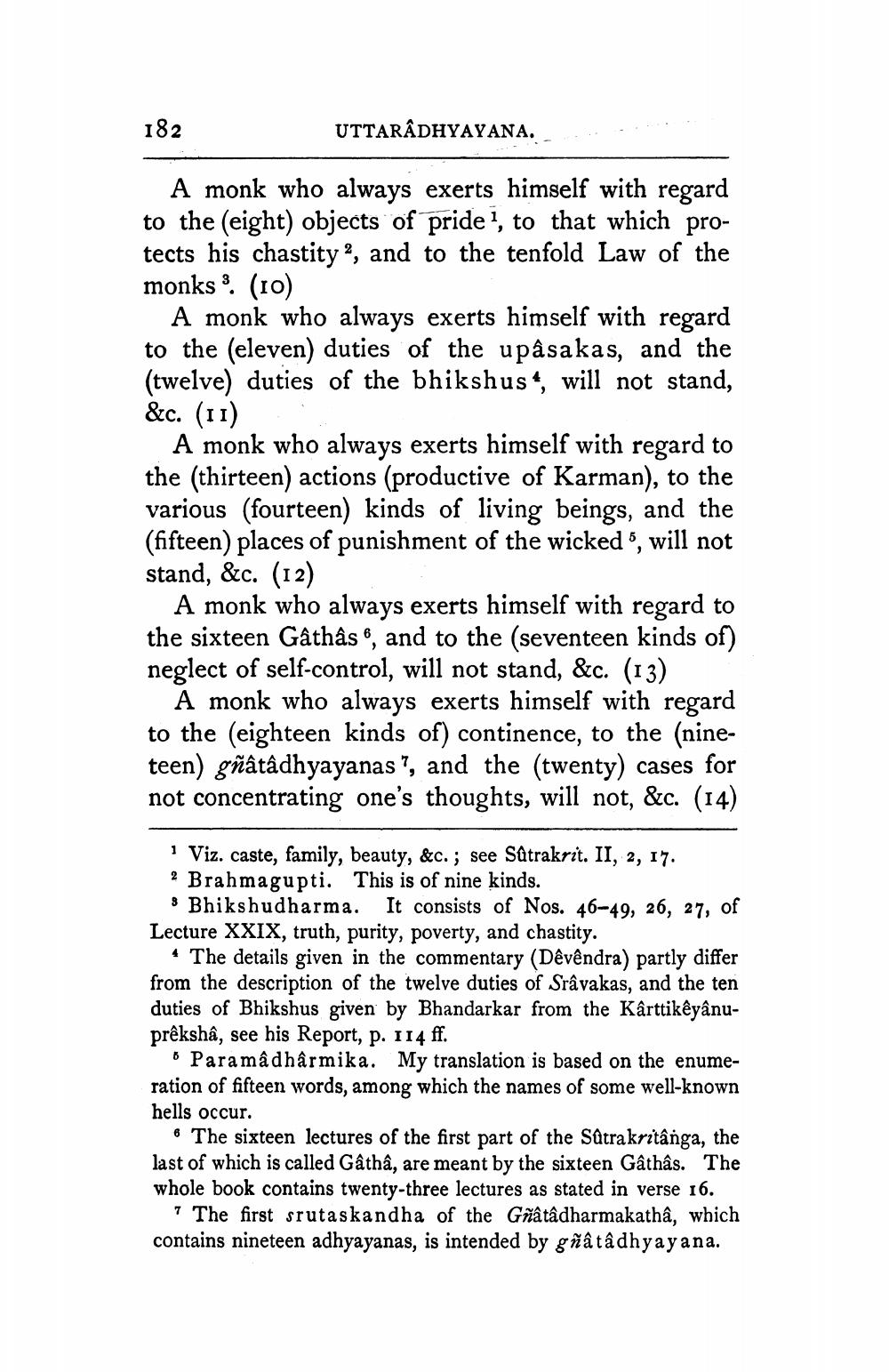________________
182
UTTARÂDHYAYANA.
A monk who always exerts himself with regard to the (eight) objects of pride1, to that which protects his chastity 2, and to the tenfold Law of the monks. (10)
A monk who always exerts himself with regard to the (eleven) duties of the upâsakas, and the (twelve) duties of the bhikshus, will not stand, &c. (11)
A monk who always exerts himself with regard to the (thirteen) actions (productive of Karman), to the various (fourteen) kinds of living beings, and the (fifteen) places of punishment of the wicked 5, will not stand, &c. (12)
A monk who always exerts himself with regard to the sixteen Gâthâs, and to the (seventeen kinds of) neglect of self-control, will not stand, &c. (13)
A monk who always exerts himself with regard to the (eighteen kinds of) continence, to the (nineteen) gñâtâdhyayanas 7, and the (twenty) cases for not concentrating one's thoughts, will not, &c. (14)
1 Viz. caste, family, beauty, &c.; see Sûtrakrit. II, 2, 17. Brahmagupti. This is of nine kinds.
2
Bhikshudharma. It consists of Nos. 46-49, 26, 27, of Lecture XXIX, truth, purity, poverty, and chastity.
The details given in the commentary (Dêvêndra) partly differ from the description of the twelve duties of Srâvakas, and the ten duties of Bhikshus given by Bhandarkar from the Kârttikêyânuprêkshâ, see his Report, p. 114 ff.
Paramâdhârmika. My translation is based on the enumeration of fifteen words, among which the names of some well-known hells occur.
The sixteen lectures of the first part of the Sûtrakritânga, the last of which is called Gâthâ, are meant by the sixteen Gâthâs. The whole book contains twenty-three lectures as stated in verse 16.
7 The first srutas kandha of the Gâtâdharmakathâ, which contains nineteen adhyayanas, is intended by gñâtâdhyayana.




